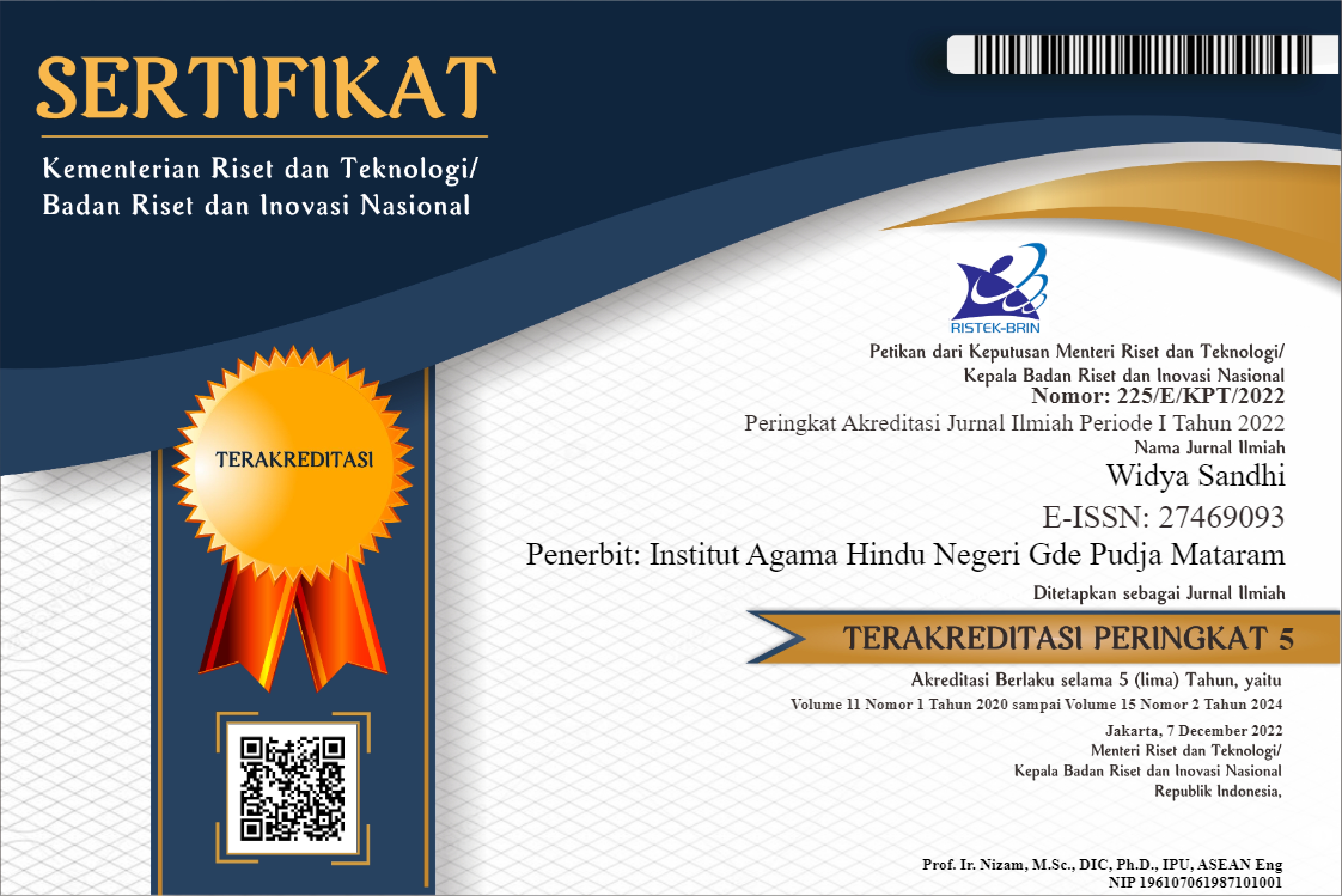KOMUNIKASI KELOMPOK DALAM MEMBANGUN PERSEPSI PETANI TERHADAP PROGRAM ASURANSI USAHA TANI (AUTP) DI KABUPATEN LOMBOK BARAT
Abstract
The aim of this study is to analyze the benefits of group communication in building farmers' perceptions of the AUTP program; to analyze the factors that influence group communication in building farmers' perceptions of the AUTP program; and to analyze how to encourage effective group communication in building farmers' perceptions of the AUTP Program in West Lombok Regency. This study uses a descriptive method with a qualitative approach. Data were collected through observation: observations and interview methods. Analysis of the research data showed that 66,7% of farmers gave a positive perception of the AUTP program because of the establishment of effective communication within the group so as to increase the confidence of farmers (based on the assessment of 73,3% of farmers). As many as 66% of farmers considered that experienced extension workers have the ability to build group communication so that they can build positive farmer perceptions of the AUTP program. The intense knowledge transfer process from the extension workers takes place in group communication so that it stimulates stimulation to farmers and causes a response in the form of a very good perception of the AUTP program.
References
Chanafi, A., Fauzi, A., &Sunarti, S. (2015). Pengaruh Persepsi Masyarakat Terhadap Implementasi Corporate Social Responsibility (CSR) dan Dampaknya Pada Citra Perusahaan (Survei Pada Masyarakat Sekitar PT. Greenfields Indonesia yang Bertempat Tinggal di RW. 02 Dusun Maduarjo Desa Baba dan Kecamatan Ngajum Kabupaten Malang. Jurnal Administrasi Bisnis (JAB), 3(1), 1-7.
Elhusna, Fadillah., Melinda Noer, Yuerlital. 2019. Analisis Keikutsertaan Petani Dalam Asuransi Usaha Tani Padi (AUTP) Di KecamatanPariaman Timur. JOSETA: Journal of Socio Economic on Tripical Agriculture. 1 (2):58-67.
Kartono. (2010). Penerapan dan Persepsi Petani Tentang Inovasi Teknologi Pengelolaan Tanaman Terpadu (PTT) Padi (Kasus Petani Padi di Lokasi Prima Tani Kabupaten Serang). Institut Pertanian Bogor.
Oktavia, Yenny., ZednitaAzriani. 2020. Analisis Komunikasi Program Asuransi Usaha Tani Padi dan Persepsi Petani di Kabupaten Solok. JOSETA. 2 (2): 176-185.
Prihono dan Murdani. (2020). Analisis Sikap Petani Terhadap Pelaksanaan Sekolah Lapang Pengelolaan Tanaman Terpadu (SL-PTT) dan Peningkatan Produksi Padi. AGROMIX. 11 (1):101-114
Putra, Suria. (2016). Peran Penyuluh Pertanian dalam Pengembangan Kelompok Tani Padi Sawah di Desa Rambah Baru Kecamatan Rambah Samo Kabupaten Rokan Hulu. Skripsi. Universitas Pasir Pengaraian. Rokan Hulu.
Rahmanida. (2019). Peranan Penyuluh Pertanian Terhadap Program Asuransi Usaha Tani Padi (AUTP) di Kelurahan Cempaka, Kecamatan Cempaka Kota Banjarbaru. Frontier Agribisnis. 3 (4): 192-197.
Satwikani, Anak Agung Arista., I Gusti Ayu Agung Ambarawati, I Dewa Gede Raka Sarjana. (2018). Efektivitas Pemanfaatan Dana Klaim Asuransi Usaha Tani Padi (AUTP) di Subak Sengempel, Desa Bongkasa, Kecamatan Abiansemal Kabupaten Badung. E-Jurnal Agribisnis dan Agrowisata. 7 (3): 334-343.
Wahyuningsih, Tri Ambar dan Fuad Hasan. (2019). Persepsi dan Partisipasi Petani Terhadap Asuransi Usaha Tani Padi di Kecamatan Pilangkenceng Kabupaten Madiun. JSEP. 12 (3): 11-21.

This work is licensed under a Creative Commons Attribution-NonCommercial-ShareAlike 4.0 International License.
Authors who publish with this journal agree to the following terms:
- Authors retain copyright and grant the journal right of first publication with the work simultaneously licensed under a Creative Commons Attribution-ShareAlike 4.0 International License. that allows others to share the work with an acknowledgment of the work's authorship and initial publication in this journal.
- Authors are able to enter into separate, additional contractual arrangements for the non-exclusive distribution of the journal's published version of the work (e.g., post it to an institutional repository or publish it in a book), with an acknowledgment of its initial publication in this journal.
- Authors are permitted and encouraged to post their work online (e.g., in institutional repositories or on their website) prior to and during the submission process, as it can lead to productive exchanges, as well as earlier and greater citation of published work (See The Effect of Open Access).






.jpg)




